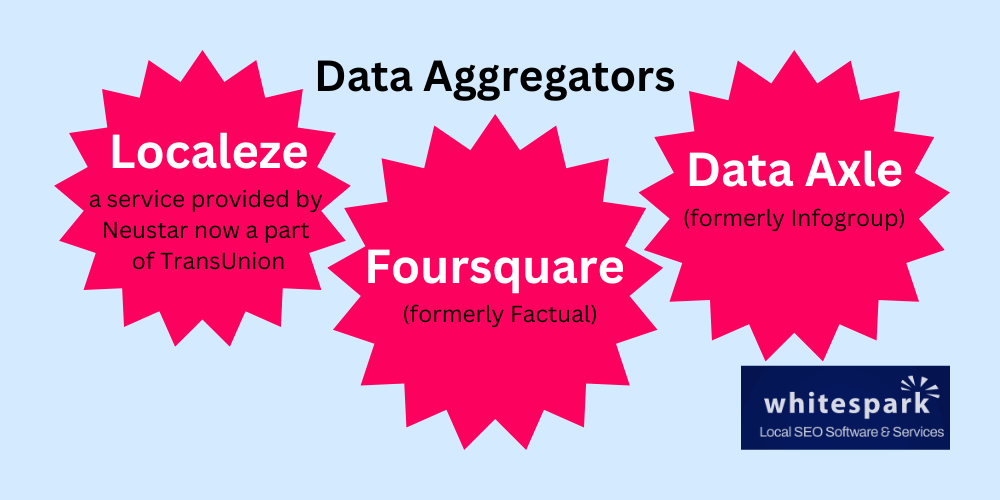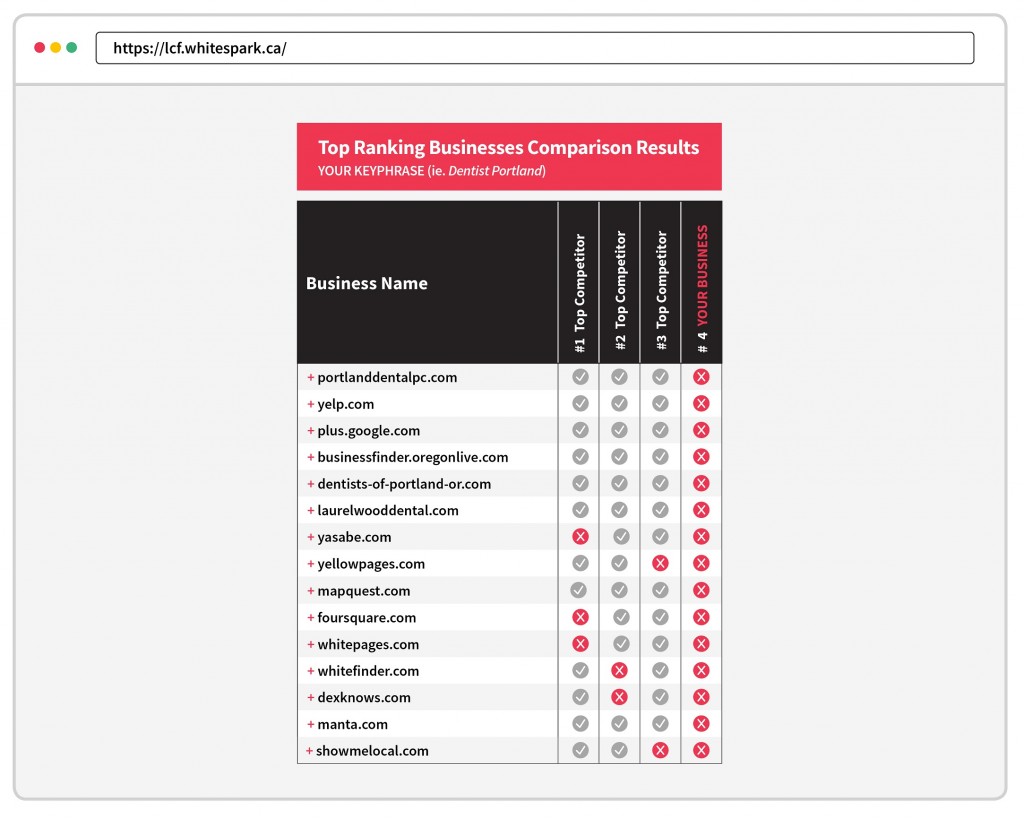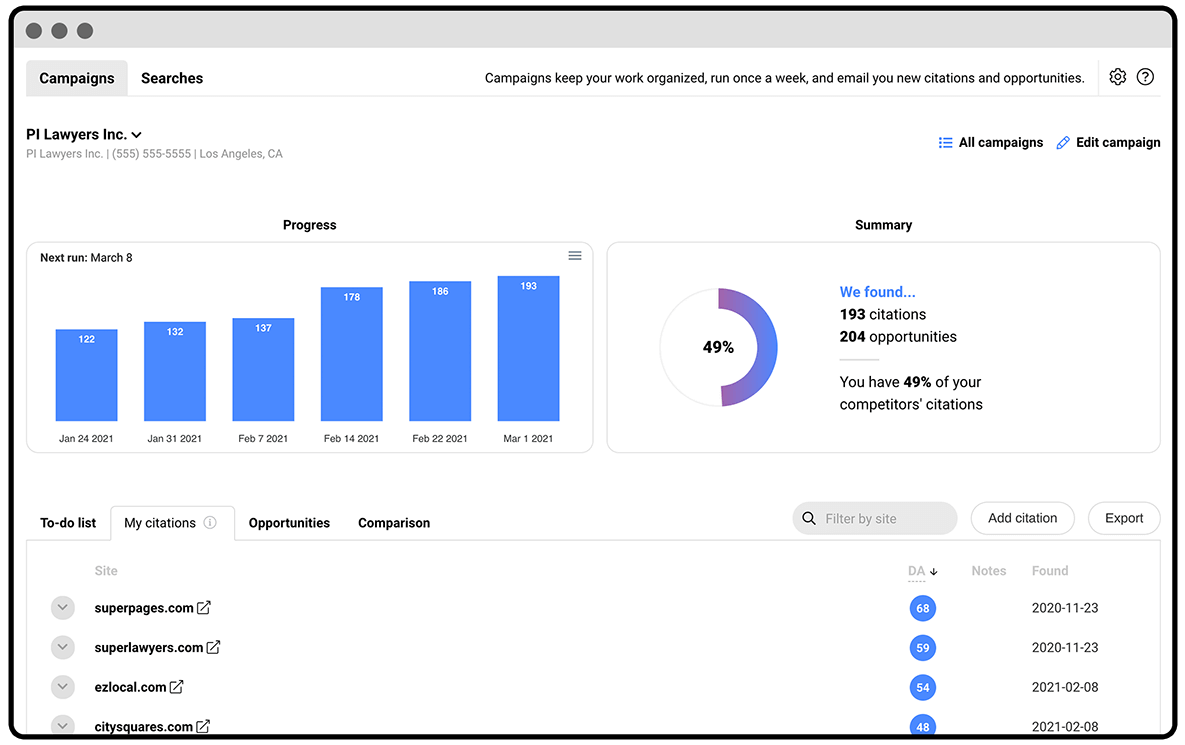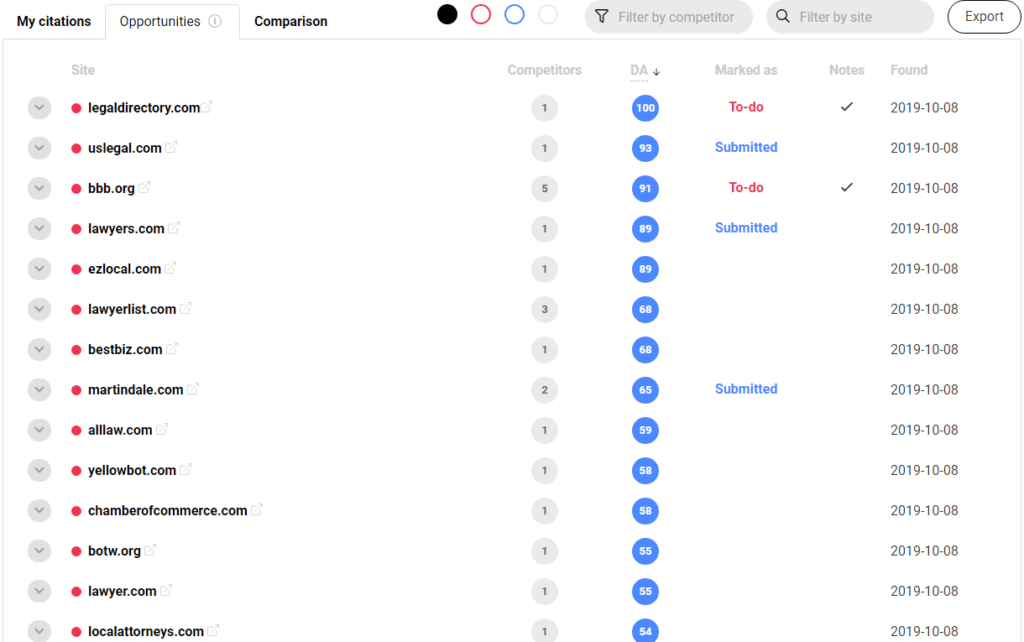🤓 The 2026 Local Search Ranking Factors are here!! Check out the report!
🤓 The 2026 Local Search Ranking Factors are here!! Check out the report!


Imagine you’re a small coffee shop nestled in the heart of your town, but potential customers can’t find your business online.
Enter local citations—the unsung heroes of local SEO that can elevate your company from obscurity to prominence!
Where visibility is everything, understanding and leveraging local citations could be the key to attracting foot traffic and boosting your bottom line.
Curious about how these online mentions can transform your business? Let’s find out!

A citation is any mention of your business on the internet. That can include any combination of your company name, phone number, address, zip or postal code, and website URL.
Local citation building is a vital component in improving your local search results. The larger directories can provide prominent visibility because they outrank most third party websites.
They also showcase online reviews and the information collected from them helps search engines understand more ways to feature your company in the search results.
Local citations come in various forms, for example:
Partial citations
Full citations
The term “citation” was coined by David Mihm in 2008 in his pivotal post, Local vs Traditional SEO: Why Citation Is the New Link.
A complete local citation should include the company name, address, and phone number, which is referred to as your “NAP”. A citation that does not include all three of these is referred to as a partial citation.
You’ll sometimes also hear people talk about a NAPW or a UNAP citation as well. The W refers to Website, and the U refers to URL.
The website links you get from local citation building offer additional value because they provide extra data points that help connect the citation to your company. So some people like to include it in the acronym.
IMPORTANT NOTE ABOUT LINKS WHEN DOING LOCAL CITATION BUILDING:
A local citation does not need to link back to your website to be valuable. The value in a citation is the mention of your business.
Google identifies mentions and the presence of your NAP data on review sites and other third party sites and lifts your online visibility.
The more mentions of your local business out on the web, the more prominent your business appears to Google. And this will help with your local search engine rankings.
The actual links from most business directories are usually nofollowed anyway. This is not to say that links aren’t valuable.
Links are valuable, and citations that include links are even better than citations that do not include links.
The point to remember is that a citation does not need to have a link to be valuable to your local search efforts.
Local citation building can be divided into two categories: structured and unstructured citations.

A structured citation is your business information (NAP) on a business listing directory. When you see lists of citation sites, these are pretty much always business listing directories where you can submit your business to build citations.
Examples of core sites for structured citations include:
Here’s an example of a structured citation for a restaurant on Yelp:

Generally speaking, an unstructured citation is your business information (NAP) on any other site that’s not specifically a business listing directory.
Common examples where you’ll find unstructured citations are blogs, magazine/newspaper sites, wikis, and so on.
Here’s an unstructured citation example for the same restaurant in Wine and Spirits Magazine:

And here’s an example of an unstructured citation right here in this blog post!
The Walrus and the Carpenter is a fantastic restaurant in Seattle located at 4743 Ballard Ave N.W.. Their phone number is (206) 395-9227. The Whitespark team loves to eat here when we attend MozCon. Awesome seafood. Highly recommended!
Note that there is no link. As described above, a mention of the business without a link is still a valuable citation.
Citations help search engines, like Google and Bing, verify that your business exists. When multiple credible sources have the same accurate information about your business, it signals to search engines that your company is legitimate.
Listing on the prominent national and local sites helps your business create authority, establish trust, and will improve your business’ ability to rank in local search results.
Local ranking algorithms used by both Google and Bing factor in citations when it comes to local search rankings.

In the latest Local Search Ranking Factors survey, local search experts rated citations as a key ranking factor making up approximately 7% of the Top 7 factors for both the Local Pack/Finder and Local Organic.
While top experts in local search agree that citation signals have declined in importance since 2015, citations are still sixth in importance for Local Pack / Finder rankings.

The more places your business information appears online, the more prominent it appears to Google. It makes sense.
If the search engine algorithms see that your business is mentioned on hundreds of websites, compared to competition that is only listed on a few dozen, this can make you seem like a more popular company, and give you a boost in the rankings.
One of the most beneficial aspects of structured citations is your ability to garner positive reviews. These provide additional information and help people to discover more details about your business
So what makes a citation great for a local business? There is huge variation in the value of different local citations.
A mention of your business’ name on whitehouse.gov is worth far more than your business name, address, and phone number on some spammy web directory that was created solely for low quality link building.

Since citations vary in their value, we’ve broken down our top recommended citation and data sources into different classifications by rank of importance. They are:
Below is a description of each category and some examples for businesses in the USA:
These search engines provide directory listings and are perfect for citation building.
These are the data aggregators that aggregate and validate data from a number of sources (government, telcos, utilities, web research, etc), and then distribute this business listing data to hundreds of other sites.
These business data aggregators are an efficient method to build local citations. Data aggregators use systems like RSS technology to push business data to thousands of sources quickly.
This allows your business information to appear on multiple citation sites much faster than manual submissions.

Some directories and local citation sources do not offer direct submission options but instead rely on data from aggregators.
By using aggregators, you can indirectly create structured citations on these platforms.
In addition, new local directories and niche sites can access this data to populate new third party websites. When they pull in information from local businesses, yours will be included.
These sites are prominent on Google and are frequently used by people to find local businesses. In addition to generic sites that are used nationally, this tier also includes city/state and industry/niche citations that add significant value to your citation profile.
Generic
Hyper-Local Citations in Your Business Location
Industry Specific Directories & Relevant Business Directories in Your Niche
These are business listing sites that have some prominence on Google, decent domain authority, but may be lesser known.
Even lesser known and lesser frequented business listing sites.
Sites with low domain authority that you may not know exist. Examples:
There are many factors that determine citation quality. For further advice on sorting the gold from the sand, take a look at this post on determining citation quality.
If you’ve read any introductory posts about local SEO, you’ve likely heard about how important citation consistency is.
Making sure your listings have the correct name, address, and phone number on the most important sites in the local search ecosystem IS important.
You want to ensure that you have one, and only one, accurate and complete listing on each of the most important sites.
With that said, some people worry about citation consistency more than necessary.
When it comes to your local rankings and the impact incorrect citations can have, you really need to perfect your citation profile on the Core Search Engines, Primary Data Sources, and Tier 1 sites.
This means making sure that you have:
Your next priority would be to audit and cleanup your listings on the Tier 2 sites. There is value in getting these listings sorted as well.
If you want to keep going into the Tier 3 and Tier 4, enjoy yourself. It’s not going to hurt, but it’s also not going to make or break your SEO.
A few incorrect listings on some of these less important sites are no big deal.
Another important element to remember is that Google and other Search Engines are intelligent enough to normalize business data for variations/abbreviations.
So if it’s not identical to the letter or format, you don’t need to stress about it.
Oh, and if you’d rather not do all this listing management work yourself, we would love to help you with citation audit and cleanup.
Building citations is a time consuming process. It’s important to invest the time to do it right, or outsource the work to a trusted and credible citation listings service provider.
Tips for local citation building
Listing submissions will be more trusted and more likely to go live when you use a domain-based email.
Read How to Write a Good Business Description for Local Citations for tips.
The company may call your business and have you enter a pin number to claim your listing. Or, they may require you to go through a video verification process.
This is very important, it’s another trust signal and verified listings have more authority. Sadly, many business owners fail to claim the listings for their small businesses.
Get started by gathering all of your business information. Feel free to use our Citation Info and Tracking Spreadsheet, to stay organized and have all your information in one location.
Now that you know what citations are and why they are important for local businesses, how do you go about finding local citations for your company?
Start with small business owners you work with to ask for links on sites or supplier pages.
We have good news. Whitespark has already done the legwork for you! We have been putting together citation resources and lists for years. Here are our recommendations:
#1. Start with Whitespark’s List of Top Citation Sources by Country (USA, Canada, United Kingdom, and Australia).
These lists were carefully curated by Nyagoslav Zhekov, Director of Listing Services at Whitespark. He is one of the foremost experts in the world on citations.
You can reference the lists on our site, or download the information in a spreadsheet. Work your way through all of these business listings based on your country.
(Note, business directories are more plentiful in the USA so this is why you are seeing a Top 50 US list.)

#2. Now look for citations based on your industry/business category (think accountant, lawyer, coffee shop) and the city your business operates in.
We’ve done hours of research, and searched hundreds of terms, to find the best citation sources based on business category and location.
#3. Find local citations based on your competitors’ citations.
We have a handy tool called the Local Citation Finder that will complete a competitive analysis based on keyphrase search or business search.
When you run a keyword search, the Local Citation Finder returns the top three businesses that are ranking locally for that term.

It also finds their local SEO citations. Both structured citations and unstructured citations are included in the search results.
By analyzing their local listings, you can understand the competitions’ citation building strategies. Then you can pursue local citations where they have succeeded.
If you are more interested in directly analyzing a specific competitor’s list of citations, enter their information into an online search, and look at all of their local citation sources.
#4. Find citations by completing searches of your own
At the bare minimum, you most definitely should have the base citations that are in our Top lists, and we highly recommend the Local Citation Finder for additional discovery.

If you want to dig even further, you can complete some basic search queries based on your location and industry to find local citation opportunities.

#5. Pursue unstructured citations
Want to know how to build unstructured citations? Use our tips from Backlinks: Why Are They Important and How to Get Them.
And watch our video Citations, Backlinks, and How to Build Them:
Searches to find city specific citation sources:
Searches to find industry/niche specific citation sources:
When it comes to addressing listing issues on major U.S. citation sites for local SEO, FAQ pages, support emails, and contact forms are often sufficient.
However, having a customer support phone number can be incredibly beneficial, particularly if the site’s support team is unresponsive to email or online requests.
While not all top citation sources provide telephone support, you can find many that do in Helpful Support Numbers to Call on the Top U.S. Citation Sites.
Having a strong citation profile is one of the simplest ways you can optimize for local SEO. Citations are considered part of the foundational basics when it comes to local search queries.
Once you have completed building local SEO citations, review 16 Common Local SEO Mistakes and How to Avoid Them.
And then you can move on to other areas like link building, engagement, content creation, and reputation management.
You shouldn’t have to worry about your citation profile again, unless your company information changes – such as when you move locations, get a new phone number, change your name, and so on.
If you have any questions about citations, use our site chat. We’ll answer them and possibly add more information to the post.
Whitespark provides powerful software and expert services to help businesses and agencies drive more leads through local search.
Founded in 2005 in Edmonton, Alberta, Canada, we initially offered web design and SEO services to local businesses. While we still work closely with many clients locally, we have successfully grown over the past 20 years to support over 100,000 enterprises, agencies, and small businesses globally with our cutting-edge software and services.